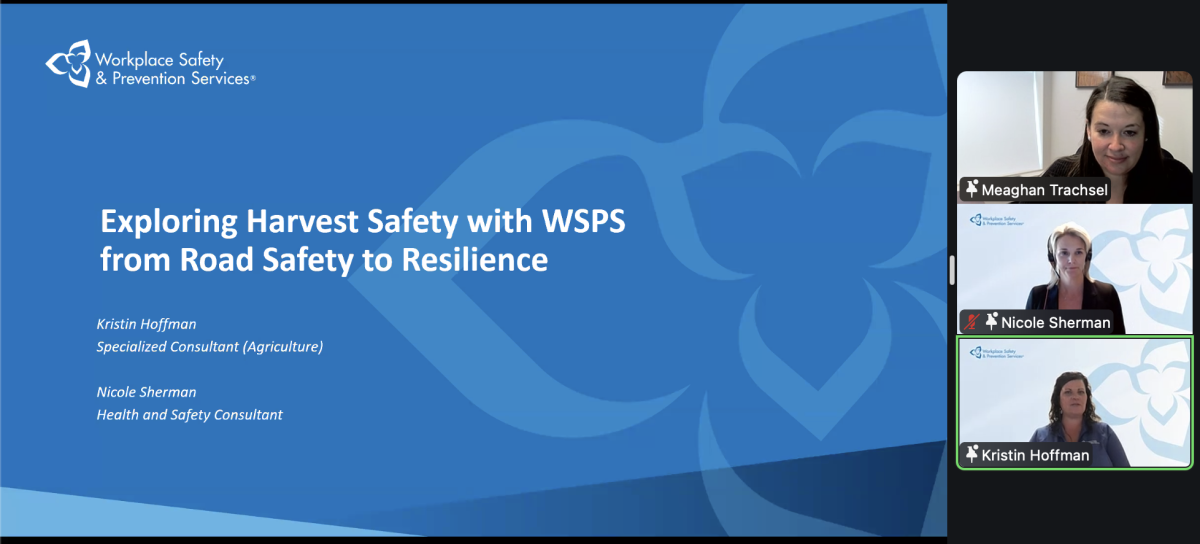While a new draft modalities text for agriculture negotiations at the World Trade Organization has much for Canadian crop and livestock exporters to like, Canada has “serious concerns” over what’s not there.
Specifically, federal Agriculture Minister Gerry Ritz said in a release Tuesday that he’s “particularly disappointed that there has been so little progress in the area of sensitive products,” which in Canada’s case includes its supply-managed (SM) dairy, poultry and egg sectors.
Ritz said progress has stalled on that issue despite his “direct intervention” with Crawford Falconer, the chair of the WTO ag talks and author of the new draft modalities text, to express Canada’s position on SM goods.
Read Also

Exploring Harvest Safety
Kristin Hoffman of WSPS explains measures for increased farm safety around harvest season
“The fact remains that Canada firmly opposes proposals for any over quota tariff cuts or tariff quota expansion for sensitive products,” Ritz said in his press release. “This remains a fundamental and consistent element of Canada’s negotiating position.”
That said, Ritz noted there’s much of interest for farmers who produce for export rather than domestic markets. Falconer’s latest text, Ritz said, “continues to move toward an aggressive tariff reduction formula; substantial cuts to and strengthened disciplines on trade-distorting domestic support; and the elimination of all forms of export subsidies.”
Falconer, meanwhile, told reporters in Geneva Tuesday that WTO talks have pierced the cloud layer and a global trade deal is in sight.
The revised texts issued Monday are the latest stage in the WTO’s Doha round of trade talks, which since 2001 have been jammed in haggling between rich and poor nations.
The new texts were intended to clear the way for nations’ trade ministers to meet and agree to an outline deal. But with some gaps still to be closed, the where and when for such a meeting remain uncertain, Reuters said in a report Tuesday.














